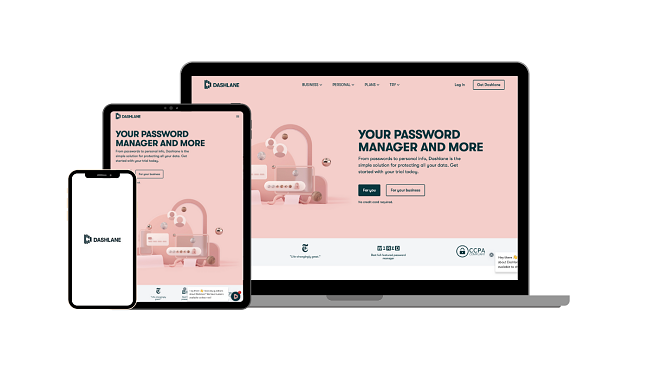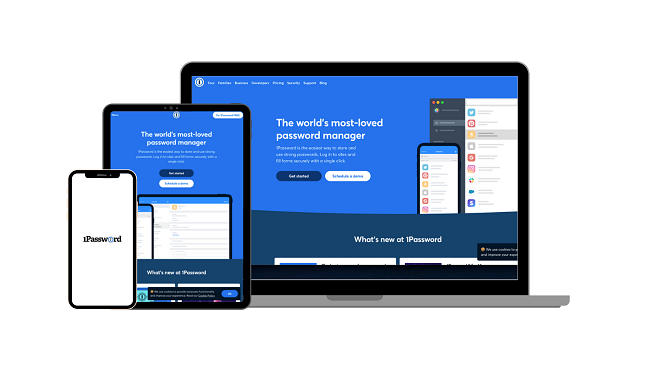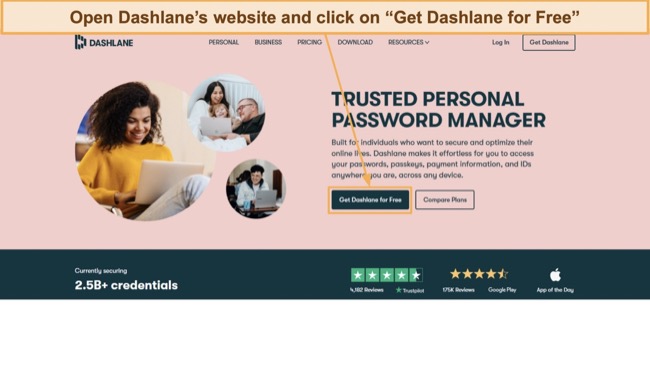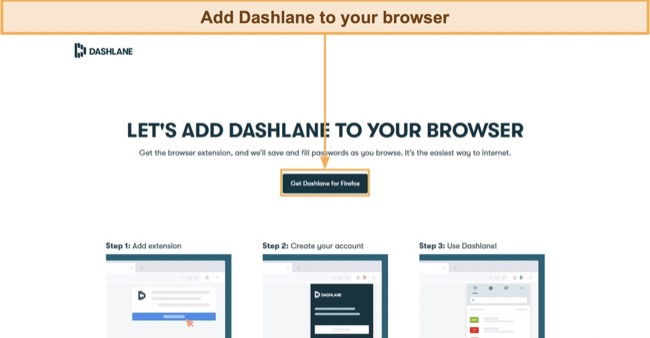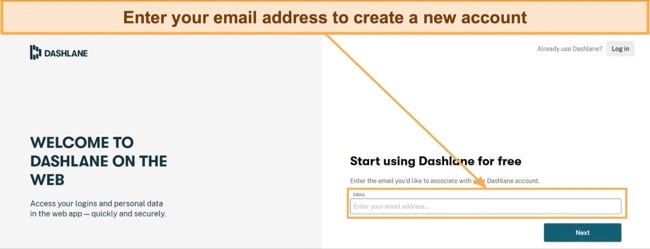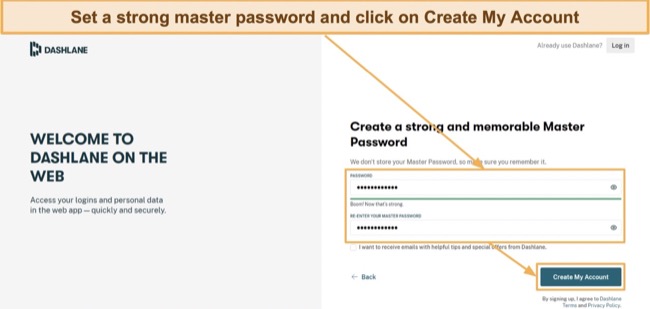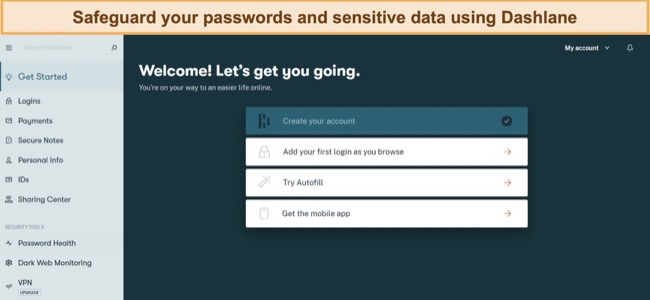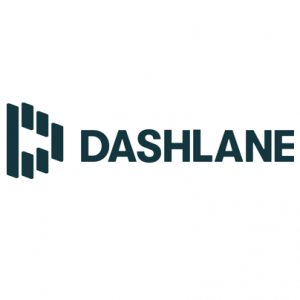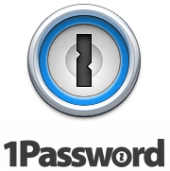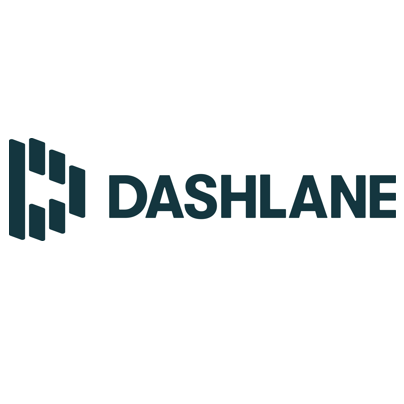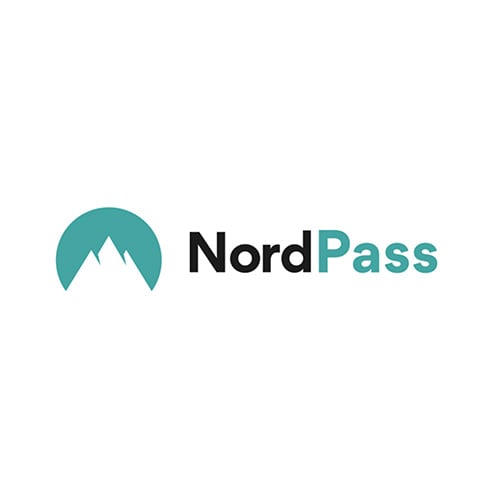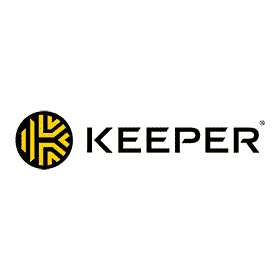Are Password Managers Safe to Use in 2024? (Full Analysis)
Password managers are critical to ensure your credentials stay safe, but not every password manager is good enough to protect your passwords. Plus, it’s hard to tell which app offers reliable safety. So, I tested multiple password managers to learn which ones are worth using.
After thoroughly testing the available choices, I’ve picked the top password managers that deliver airtight protection. These apps provide unbreakable encryption, zero-knowledge architectures, and various safety features to ensure password security.
Every password manager on this list provides reliable safety, but I found that Dashlane is the best overall password manager. It uses AES 256-bit encryption, offers two-factor authentication, supports passkeys, and has several other safety features.
Protect your passwords with Dashlane
Quick Guide: Best (100% Safe) Password Managers in 2024
How Do Password Managers Keep Your Passwords Safe?
Password managers have strong encryption, privacy-focused architectures, and other features that keep you safe. The following are key features that help these apps secure your passwords.
- Unbreakable encryption. Your data is protected using AES 256-bit or similarly strong encryption. This level of encryption is considered virtually uncrackable, providing a formidable defense against unauthorized access.
- Zero-Knowledge architecture. This architecture ensures no one knows your master password except you. It’s neither stored on the company’s servers nor accessible by their systems. Only you hold the key to unlocking your vault, enhancing security and privacy.
- Independent audits. Reputable password managers submit to regular third-party security audits. These audits are conducted by independent experts who assess the system’s security measures, providing an extra layer of assurance regarding the manager’s safety.
- Password auditing tools. These tools evaluate the strength of your passwords, identify duplicates, and suggest improvements. They assist in improving your security by ensuring your passwords meet high standards of complexity and uniqueness.
- Multi-factor authentication. This feature implements additional authentication methods beyond your master password. It typically involves a secondary verification form, such as a fingerprint scan or a one-time code sent to your mobile device. This extra layer of protection enhances your vault’s security.
- Dark web monitoring. This is an essential password manager feature that checks whether any of your passwords were leaked in data breaches. So, it instantly lets you know if any passwords must be changed.
Are There Any Risks When Using a Password Manager?
Using a password manager offers many security advantages, but it’s important to remember the potential risks:
- Device security. If malware infiltrates your device, it could compromise your password manager’s safety. This isn’t the password manager’s fault, but it could affect it. Also, keyloggers, screenloggers, and other spyware could track your activity to get your master password. Regularly update and run a top antivirus solution to reduce this risk.
- Forgetting your master password. Accessing your vault is impossible without your master password unless your password manager offers account recovery features, which few do. Make this password memorable, but strong and not easily guessable.
- Backup issues. You may lose your data if your provider’s servers break down and they don’t have backups. This issue is especially problematic if you use local password managers and don’t manually back up your data.
- Bad password manager. Not all apps are foolproof. Ensure you use a top password manager with reliable encryption and security features, from a trustworthy company.
- All your sensitive data is in one spot. While encrypted, if someone gains access to your master password, they could potentially access all your accounts. Protect it with utmost diligence.
- Phishing attacks. Beware of phishing scams, which can trick you into revealing your login credentials. Always verify website legitimacy before entering login information.
- Account recovery process. If the account recovery process isn’t well-protected, malicious actors may exploit it to access your vault.
Stay aware of these potential risks and take necessary precautions to ensure the safety of your passwords.
Can Password Managers Be Trusted?
Not all password managers are trustworthy. However, the best password managers use various characteristics to ensure your security. First and foremost, the best password managers use unbreakable AES 256-bit or XChaCha20 encryption to protect your vault. So, there’s no way to access your information unless it’s decrypted with a password manager.
Also, note that all reliable password managers use zero-knowledge architectures. This means even the provider doesn’t know the content of your vault. The only way to see what you’ve stored is by decrypting your vault using the master password.
Of course, it’s critical to ensure you use a strong master password. Since this password is the only way to access your vault, you must protect it against hackers by ensuring it is over 10 characters long. Plus, you should try to ensure your master password has numbers and special characters, thus making it harder to guess.
So, as long as you use a strong master password, you can trust any of the industry’s top password managers to store your data.
Which Type of Password Manager Is the Safest?
There are multiple kinds of password managers, each with pros and cons.
Browser Password Managers
These are local storage password managers built into browsers like Chrome, Firefox, and Safari. They’re really basic and easy to use, but browser-based password managers aren’t that safe. Most of them don’t have proper encryption to ensure your passwords stay safe, nor do they have features like password generation, automatic sync, and other useful tools.
Cloud-Based Password Managers
Cloud-based password managers save their data on secure servers to ensure hackers can’t gain access to it. Dashlane and NordPass are examples of cloud-based password managers. To ensure your data isn’t captured during transit, it’s encrypted locally on your device using military-grade AES 256-bit or similarly strong encryption.
These apps also have features like auto-save and fill, password generation, and more for added convenience and safety. Of course, the obvious downside to these password managers is that you’re completely reliant on third-party servers for your data. You’ll have no control over your vault’s security.
Desktop or Local Password Managers
Desktop/local password managers store your data locally on your desktop, which may be more secure than external servers. However, you must secure your desktop against cyber threats and ensure your device doesn’t break down, or you may permanently lose your data.
These apps also utilize the same encryption standards as cloud-based password managers and are just as feature-rich, including tools like 2FA, auto-save and fill, and more. KeePass is a desktop-based password manager. RoboForm can operate as a local password manager, but it also offers cloud storage functionality to enable sync between devices.
What to Do if Your Password Manager Gets Hacked?
Password managers are hard to hack due to their robust security measures. Even if a breach occurs, your passwords and data remain safe because they’re encrypted and unreadable without the master password.
To ensure your safety in a rare hack event, follow these steps:
- Change your master password. If you suspect a breach, changing your master password is crucial. This immediately limits any potential unauthorized access.
- Enable two-factor authentication. Two-factor authentication adds an extra layer of protection. Even if hackers know your master password, they still need the second authentication factor to gain access.
- Contact support. Contact the customer support of your password manager. They can provide guidance and take additional measures to secure your account.
- Review recent activity. Examine the recent activity in your password manager. This can help identify any suspicious behavior and further safeguard your accounts.
Following these steps helps maintain the security of your accounts, even in the unlikely event of a password manager breach.
Best & Safest Password Managers (Updated 2024)
1. Dashlane — The #1 Overall Password Manager With Unbreakable Security
Key Features:
- Protects passwords with AES 256-bit encryption
- Has a zero-knowledge architecture to ensure data safety
- Includes two-factor authentication for an added layer of security
- Provides a built-in VPN for added online protection
- Includes a 30-day money-back guarantee
Dashlane is the top password manager to ensure password safety. It guards your credentials and sensitive data using AES 256-bit encryption. Plus, it has a zero-knowledge architecture, meaning no one but you can see your vault. All vault data gets stored on Dashlane’s servers after being encrypted locally, so people spying on your traffic can’t see it.
During tests, I was impressed with Dashlane’s secure vault. It provides safe storage for passwords, notes, identities, card details, and personal information. Plus, it has well-organized vaults, and you can create custom categories to ensure all your data is easily accessible when needed.
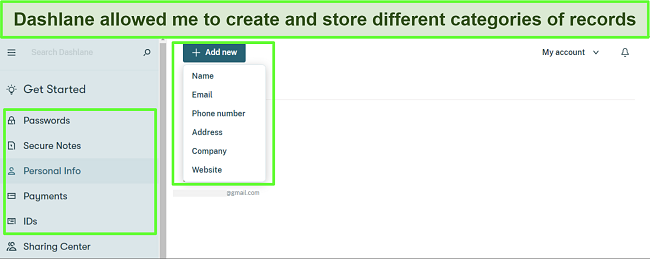
Dashlane fully supports two-factor authentication, meaning it’s easy to add another layer of security besides your master password. You can set up 2FA via authenticator apps like Authy and Google Authenticator or FIDO and WebAuthn hardware keys like YuibKey. You can also set up 2FA via biometrics on mobile devices.
Of course, Dashlane also includes other safety features, like the following:
- Password Health — audits your overall password safety to keep your accounts safe.
- Dark Web Monitoring — checks if any of your passwords were leaked in data breaches.
- Passkeys — creates passkeys on supported websites for safe and passwordless logins.
I found Dashlane’s Dark Web Monitoring very useful. In my tests, this tool informed me about multiple compromised accounts linked to my email, and I instantly changed their passwords to ensure security. I also like that this feature highlights exactly when a breach occurred and lets you monitor multiple emails simultaneously.
Among this app’s unique strengths is the VPN. Dashlane has partnered with Hotspot Shield to provide a VPN, meaning you’ll get all the benefits of Hotspot Shield with this app. It isn’t the best standalone VPN available, but you’ll get fast speeds thanks to the proprietary Catapult Hydra protocol. Also, the VPN uses AES 256-bit encryption and has a no-logs policy.
You can get Dashlane for as low as $4.99/month, but I suggest you get Dashlane’s Family plan for the best value. It provides all the features in the Premium plan while providing up to 10 different accounts, meaning everyone at home can easily safeguard their passwords.
Best of all, you can try Dashlane risk-free, as it has a 30-day money-back guarantee and an equally long free trial. So, you’ll get plenty of time to try all this app’s features and see if it’s secure enough to safeguard your passwords.
Secure your passwords with Dashlane
2. 1Password — Offers Unbreakable Vaults That Can Store All Your Sensitive Data
Key Features:
- Protects passwords with AES 256-bit encryption
- Includes secure vaults with storage for passwords, identities, credit cards, and more
- Uses a zero-knowledge architecture to ensure data privacy
- Provides the Watchtower to check overall password safety
- Has a 14-day free trial
1Password’s app has secure and reliable vaults you can use to store all kinds of sensitive data. In my tests, I found that you can use 1Password to store any kind of information, including passwords, accounts, identities, card details, medical records, API credentials, and more. No other password manager has a vault supporting such a wide variety of information.
As for security, 1Password uses unbreakable AES 256-bit encryption to protect passwords and has a zero-knowledge architecture to guarantee vault privacy. Also, 1Password has successfully cleared audits by Cure53, AppSec, BugCrowd, CloudNative, and other sources, meaning you can trust its data management practices.
Besides its core safety features and vault, the Watchtower is one of Dashlane’s standout tools. It’s a password auditing feature that monitors and helps improve your overall password safety. The Watchtower highlights weak and reused passwords. Plus, reminds you to set up two-factor authentication on accounts that support it.
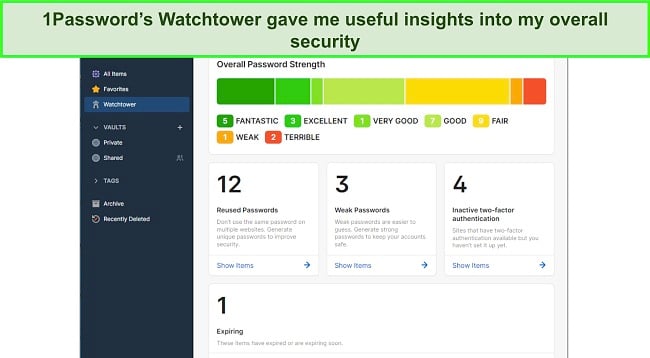
1Password also has the following features for improved password and account safety:
- Travel Mode — hides sensitive vaults while you’re traveling.
- Passkeys — enables safe passwordless logins on websites that support passkeys.
- Two-factor authentication — lets you add an extra layer of safety to your account.
I like that 1Passwords supports multiple two-factor authentication methods. You can easily set it up via authenticator apps like Authy or Okta Verified. Also, you can use security keys like YubiKey or Titan as your second factor besides your master passwords.
1Password’s plans start as low as $2.99/month. However, you’ll get the best value with 1Password’s Families plan, which gives you up to 5 different accounts and all this app’s core features.
You can also try 1Password risk-free. It doesn’t have a money-back guarantee, but there’s a 14-day free trial that gives you plenty of time to try the premium app and see if it’s right for you.
Secure your passwords with 1Password
3. NordPass — Uses Innovative XChaCha20 Encryption to Guard Your Passwords
Key Features:
- Protects passwords with AES 256-bit encryption
- Has cleared multiple independent audits and is GDPR and CCPA-compliant
- Includes multiple two-factor authentication options
- Creates passkeys for a safer login process
- Provides a 30-day money-back guarantee
NordPass’ XChaCha20 encryption delivers airtight password safety. Also, NordPass has cleared multiple independent audits while being GDPR and CCPA-compliant. So, I fully trust this app to safeguard my passwords and sensitive information.
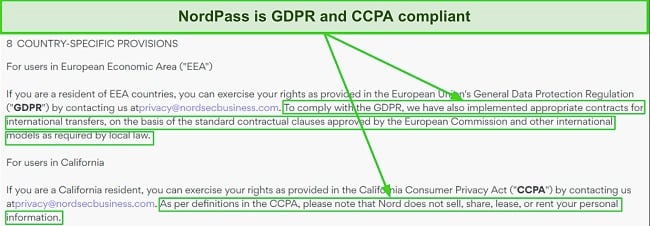
During tests, I found that NordPass’ easy-to-use vault stores all kinds of sensitive data. The vault can save passwords, private notes, passkeys, identities, and more. NordPass’ vault isn’t as comprehensive as other apps, though, as it doesn’t have specific sections for storing API credentials, SSH keys, and similar data.
NordPass also includes the Password Health feature to audit your password safety. It informs you about weak, duplicate, and old passwords so you can change them and update your account security. There’s also a Data Breach Scanner that tells you about any breached passwords you immediately need to change.
Besides the above tools, NordPass offers the following for added password safety and convenience:
- Passkeys — generates secure passkeys on supported websites for passwordless logins.
- Two-factor authentication — offers an additional layer of vault security besides your master password.
- File storage — lets you store up to 3GB of sensitive files in your vault by attaching them to vault items.
You can get NordPass for as low as $1.69/month. It offers 1-year and 2-year subscriptions, and you’ll get the best value with NordPass’ 2-year family plan, as it allows up to 6 accounts. So, this plan lets everyone at home get a password manager at a reasonable price.
A 30-day money-back guarantee backs this password manager, meaning you can try NordPass risk-free to see if its features meet your requirements. If you’re unsatisfied, it’s easy to claim a refund by submitting a ticket.
Secure your passwords with NordPass
Comparison Table: 2024’s Safest Password Managers
| Encryption | Two-Factor Authentication | Passkey Support | Built-in VPN | Money-Back Guarantee | |
| Dashlane | AES 256-bit | ✔ | ✔ | ✔ | 30 days |
| 1Password | AES 256-bit | ✔ | ✔ | ✘ | ✘ |
| NordPass | XChaCha20 | ✔ | ✔ | ✘ | 30 days |
Warning! Avoid These 2 Password Managers
1. LastPass
Although it uses AES 256-bit encryption and has various safety features, LastPass was breached twice in 2022. Thankfully, vault data was safe because of its encryption, but these breaches have reduced my confidence in this password manager.
2. PassFab
PassFab claims to be a top iOS password manager, but it has no worthwhile features. It doesn’t encrypt your data, nor does it include tools like sync, auto-save and fill, password generation, and more. So, PassFab is not a good choice if safety is a priority.
How I Tested the Safest Password Managers in 2024
I used the following criteria in my tests to pick out the safest password managers available:
- Strong encryption — I picked password managers that use unbreakable encryption standards like AES 256-bit or XChaCha20 to protect your vaults.
- Security features — I chose password managers with safety features like two-factor authentication to ensure added vault safety.
- Zero-knowledge architecture — I prioritized password managers with a zero-knowledge architecture to ensure your vault’s privacy.
- Audits — I focused on password managers that have passed independent audits.
- Value for money — I picked apps with worthwhile price plans that deliver excellent value for money.
- Money-back guarantee — I chose password managers with money-back guarantees that let you try them risk-free.
How to Install the Best Password Manager on Windows
- Access Dashlane’s website. Open Dashlane’s website and click the Get Dashlane for Free Button to start its free plan.
![Screenshot showing how to get Dashlane's free plan via its website]()
- Install Dashlane. Install Dashlane’s browser extension on your browser.
![Screenshot showing how to get Dashlane's free plan via its website]()
- Create an account. Create a Dashlane account by entering your email.
![Screenshot showing how to create a new Dashlane account]()
- Set a master password. Set a strong master password that you can also remember.
![Screenshot showing how to set a master password for your Dashlane account]()
- Use Dashlane. Start using Dashlane’s various features to secure your passwords.
![Screenshot of Dashlane's interface after everything is set up]()
FAQs on Password Manager Safety
Are all password managers safe?
Can password managers be hacked?
Are browser password managers safe?
Which password manager should I use?
Protect Your Credentials With the Best Password Managers
In conclusion, getting a password manager is crucial so your accounts and data stay safe. However, since so many options exist, it’s hard to determine which app offers worthwhile security to defend your passwords.
Thankfully, all the above apps deliver excellent password safety via their encryption, privacy-focused architecture, and reliable security features. Plus, they’re all well-priced, meaning you don’t have to spend much money to protect your passwords.
While every app mentioned above is effective, Dashlane is the safest overall password manager. Its AES 256-bit encryption, zero-knowledge architecture, and multiple safety features combine to ensure no one can access your credentials. Plus, the 30-day money-back guarantee lets you try Dashlane risk-free.

